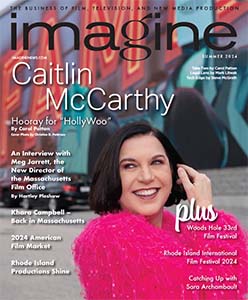 Half my life ago I was dating a woman People Magazine called the second most beautiful in the world and I was thinking two things: one, what kind of loser was I; second, really? And two, shouldn’t that have been enough? Beauty, it turns out, isn’t skin deep at all. Then what is it? We’ll get back to that.
Half my life ago I was dating a woman People Magazine called the second most beautiful in the world and I was thinking two things: one, what kind of loser was I; second, really? And two, shouldn’t that have been enough? Beauty, it turns out, isn’t skin deep at all. Then what is it? We’ll get back to that.
That’s the Message part of storytelling; if we don’t have one, we’re wasting a golden opportunity. Think about it. Think about why a movie works for you, on all kinds of levels, intellectual, brainless, grip-the-armrest scary, make-you-cry emotional, laugh-your-ass-off funny. If the screenwriter – or writers, the way it’s done in Hollywood; I was the third of eight on FORREST GUMP, the first of nine on CONTACT, the first and third on my own damn movie, SWEET HEARTS DANCE – if the, shall we say, writing team has done its job, while you’re thinking, not thinking, frightened, crying, and laughing, they’re sneaking a Message into your brain and doing more than entertaining you.
But that comes later; it’s part of what I cover in my workshops and that we’ll get to in these pages. For now we’re back to where we started – building the Story. I told a whopper at the “Imaginnaire” Awards in Providence; I wanted the audience to see how easy it is. I invented a complicated and disturbing relationship between my fellow filmmaker Jay Craven and me. Not that we’re not friends, although I believe he’s changed his phone number, but that that’s our gift to give the world, we storytellers: the undiluted joy of making stuff up. It’s our privilege and our prerogative and our responsibility, and every day that we sit down to write, it’s our challenge – to tell a story in ways it’s never been told before.
Where did we leave off in our last collaboration session? A guy went to visit his dying mother and received her final maternal blessing: your life’s a mess; fix it. That’s known as a Catalyst, it’s a call to action; every story needs one, preferably near the beginning. It puts the plot in motion. Let’s say our hero – I’ll call him Hank; you’re welcome to disagree if Hank has unpalatable connotations in your own life; that happens. I’ll never name a character Esther, my own mother’s name, and my sister’s, too. You won’t see a Linda in a script of mine or a Bruce or a Maria Conchita; I’m not going to tell you why.
But let’s pause for a moment and reflect on why names are so important. You know what would never fly in one of my workshops? Characters called “first cop” or “receptionist” or “guy at the door.” You know why? Because it would mean you hadn’t done the work to make the character real. Imagine taking your new sweetie-pie home to the folks. “Mom and Dad, I want you to meet ‘the bank teller.’ ‘Bank teller,’ these are ‘the parents’, they don’t have names either; you’ll all get along fine.” Names are crucial. You should labor over them. You should ache to find the precise one that will make your character come alive for you. Chelsea, the daughter in ON GOLDEN POND, was the name of my female mechanic in LA, which meant, to me, that she was independent, she was unique and had balls and could fix an MGB. Thank you, I said, I’m stealing your name. And ever since, people have been giving it to their daughters. The Clintons did.
Hank, which I like because it’s like a Tennessee Williams name – Brick, Chance. Blanche – carries the torch his mother handed him in the misty meadow and begins holding it up to what he’d considered the dark and unassailable truths of his life. Starting with his marriage. The beauty’s faded there; it was blinding once; maybe that was the problem.
Hank becomes our, the audience’s, stand-in. He’s not old, but he’s not young either; he’s looking at his career, his choices, the people around him, the sameness and safety of his existence, and he gets us doing it, too. And when he declares his independence, we cheer for him. Yes! Book me a seat, I’m going with you. Where?
Well, deep into the forest of Beautiful Women, first of all. That’s what our movie’s about, remember? Producers are going to love us; think of the casting possibilities. You know who else is going to love us? Actresses. What actress wouldn’t want to be in a movie called BEAUTIFUL WOMEN? This is brilliant. This will get us laid. Not us, Hank. We’re only along for the ride.
A woman in a wheelchair in a rainstorm reveals at the last minute how beautiful she is and it affects Hank deeply. But not “Woman in the wheelchair,” right? Not even “The Mother.” She needs a name. Margaret, Marjorie, Marmee; you choose. The beauty isn’t in her ancient wrinkled and, yes, beautiful, face; it’s in her courage and her generosity. She’s at the end of her life and she has the grace to tell her son to save his own before it’s too late.
Think about where that sends him. Give me five prototypical women Hank can encounter on his Odyssean journey and we’ll talk about how to make them unique and personal. And how subjective and elusive something as universal as beauty is. There’s a Message in there. And next month, when we go to Outline, we’re going to remember that. It’s part of our job.
Writers – if you wish to participate in the writing of BEAUTIFUL WOMEN with Ernest Thompson, send your ideas, comments and suggestions for prototypical women to [email protected], PUB.
Ernest Thompson, an actor, director and the author of more than thirty screenplays, including the classic ON GOLDEN POND, for which he won an Oscar, a Golden Globe and a Writers Guild Award, offers private coaching and script analysis (ad page 30), weekend workshops at his farm in New Hampshire, and also teaches advanced acting classes in Boston and elsewhere. For more information, visit: www.ErnestThompson.us.




